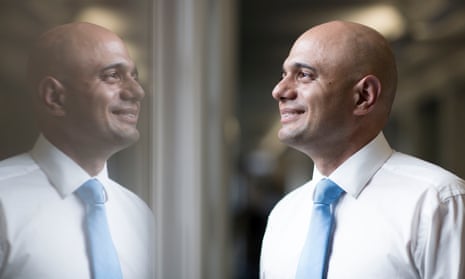Sajid Javid – the former chancellor, once a candidate to lead the Conservative Party, and still the member of parliament for Bromsgrove – has been hired as a global advisor to JP Morgan, one of the world’s largest banks. Second jobs of this kind for MPs corrupt our democracy, which is why they should be banned by law.
Javid is far from alone among senior Conservatives who have had second jobs. Shortly before she was appointed the home secretary last year, Priti Patel was being paid £1,000 an hour as an adviser to a firm that supplies services to the Ministry of Defence, while Jacob Rees-Mogg is in line for £800,000 in dividend payments from the investment fund he founded and which he continued to work for part-time when he became an MP in 2010 (he cut his operating links with the firm only when he joined the cabinet in 2019).
The issue goes beyond sitting MPs as well. The path from political office to well-paid external roles is well trodden. After he stepped down as prime minister, Tony Blair also took a lucrative role at JP Morgan . The former Conservative chancellor George Osborne took a highly paid role at BlackRock, the world’s largest investment firm, among many other jobs after leaving parliament in 2017.
And another former Tory chancellor, Philip Hammond, recently nominated for a peerage by Boris Johnson, is now a paid adviser to the finance minister of the Saudi government as it takes up the rotating G20 presidency.
Our political leaders should serve the people, not global banking giants or investment funds. Frankly, between casework, holding surgeries, supporting constituency events and attending parliament, I don’t know how they find the time. But the problem with these jobs goes much deeper than that.
Javid now has a personal financial interest in the success of a major global bank. This might not be such a problem if the interests of big banks happily coincided with our interests, but that’s not the case. Throughout the 1990s and 2000s, banks including JP Morgan lobbied hard for banking regulation to be weakened. Quick profits were to be made, and “red tape” was getting in the way. They succeeded in persuading politicians to deregulate – and then the 2008 financial crisis hit.
Big banks had taken huge risks, and made billions of pounds in profits and bonuses; but when their luck ran out, they got bailed out. They never paid the price but we did, with a decade of cuts and stagnating wages from successive Conservative-led governments.
The truth is, second jobs are one part of a whole web of mechanisms that big businesses and the super-rich uses to influence MPs and government policy, which includes donations, dinners and the revolving door between the private sector and legislators. They send gifts and offer to take MPs on trips. As Dennis Skinner once joked, it’s always “Bahamas in the winter … they never go on a fact-finding mission to Greenland in the winter!”
This is all done to influence legislators and government policy, further aligning the interests of politicians and multinational corporations. The majority of the people, meanwhile, get a raw deal as a result.
To maximise their profits, big businesses want low taxes, low wages and low regulation. Most of us, by contrast, have an interest in decent public services – funded through taxes on the wealthiest – good and rising wages, and strong regulations to protect our rights.
But cosy relationships with the private sector have held sway for too long. It’s no coincidence that the Conservative party, which has cut corporation tax to one of the lowest rates in the world, receives donations from one-third of the UK’s richest people; nor is it a coincidence that it lets an estimated £90bn in tax be dodged every year, or that the UK had a record number of billionaires at the same time as a record number of food banks. These two records are connected: politicians have made decisions that benefit their funders, not the poorest.
It’s not easy to get parliament to change its ways. Many MPs have huge financial interests in having jobs alongside their parliamentary responsibilities. And the Conservative party is hardly going to bring in rules to stop the super-rich spending fortunes to influence elections and subvert democracy.
But to change Britain, and to build a society that works for all, we have to end the grip of big businesses and the super-rich on our politics. That change can come only from the grassroots up. As the coronavirus pandemic has exposed inequalities like never before, now is the time to build that power and to demand real change.
